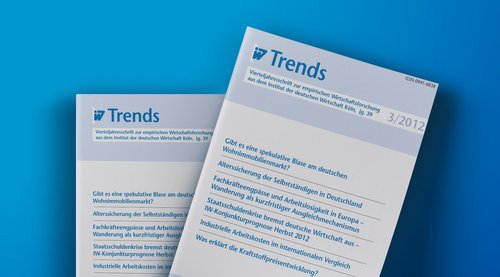In 2011 labour costs for manufacturing industry in western Germany amounted to € 37.57 per hour. That put western Germany in sixth place in the Labour Cost Ranking maintained by the Cologne Institute for Economic Research (IW). In western Germany industrial labour costs are over a quarter higher than the average for established industrialised countries. The cost disadvantage for Germany as a whole was 6 percent lower since, at € 22.43 per hour, labour costs in eastern Germany were 40 percent below those in the west. On the one hand, cost discipline in Germany has increased considerably in the new millennium. With an annual average rise of just over 2 percent in the period 2000 – 2011, German manufacturing industry had the lowest figure for any country in the European Union. On the other hand, cost expansion in 2011 was again considerably above average.

Industrial Labour Costs: An International Comparison

More on the topic
The anti‑steering provision of Article 5 (4) of the DMA: a law and economics assessment on the business model of gatekeepers and business users
Data is a success factor for digital platforms and the core of their business model. The rationale behind this is that data allows for improving the matching process between users which creates value for the platform.
IW
Industrial policy at the turn of the times
The current debate on industrial policy vacillates between the extreme positions of an orthodoxy of rejecting state action and a naive belief in the state's ability to control structural change.
IW